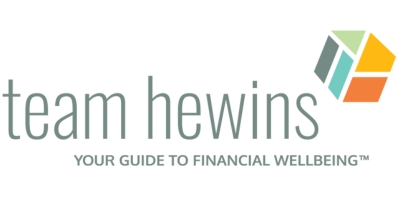The second quarter was the best quarter for the S&P 500 since 1998, up more than 20%[1] since the end of March. Small caps were up more than that! Even bonds kicked in a few percentage points of return. Of course, after the terrible first quarter, this represents a welcome recovery but not exactly a great year.
Headlines good and bad – so what the heck is true? Are we doomed or soon to be better or what? Risk on, risk off, rinse, repeat. The COVID winners versus the reopening trade… it’s a day-to-day thing.
The disconnect between economic shutdowns and partial re-openings with strong equity markets is confounding to many. Looking more deeply inside the COVID impact, markets are seeing an acceleration of certain longer-term technological trends in mobility (Apple), online shopping (Amazon), cloud computing (Microsoft), telecommuting (Zoom Video) and home entertainment (Netflix) – perhaps it’s not so irrational that the shares of these kinds of companies are trading at all-time highs.
Forbes Article – Greater Capitalism
There could be something good coming out of all this, potentially a transformation of our economy and institutions, making them more efficient and fairer, increasing the focus on outcomes for people and having the means and the will to overcome longtime obstacles to positive change.
In the introduction of the article, Greater Capitalism, the author cites surveys indicating that despite the strong economy and record low unemployment for everyone pre-pandemic, many Americans were unhappy and believed capitalism was not working well for them.
But now, rapid and historical transformation of the economy is underway. Snarky comments about Milton Friedman notwithstanding, the author is correct about Schumpeter’s concept of “creative destruction” applying to what we see today. Despite the short-term pain, the long-term gains may be substantial and well distributed.
The article proceeds in three parts, but we will just mention a few key points from the first and leave the rest of the article for you to read at your leisure. You will probably not agree with all that the author and the people he cites have to say, but the general process may well be cause for “cautious optimism.”[2]
Robert Smith
Robert Smith is the richest self-made African American and a man on a mission. He used one of his fintech companies, FinAstra, and created a means for 90,000 PPP loans to be made through the small, community-based financial institutions available to African American-owned small businesses. They had been shut out of the first round, as they did not have access to the major banks, the only ones which could access the SBA’s electronic system to apply for a PPP loan.
To follow up on this rapid and truly amazing feat, he plans to create a system in less than a year to provide ready access to the financial system for the underbanked. A boon for small businesses, urban and rural.
More broadly, we see twin revolutions in two of our most important and most troubled areas: higher education and health care. The pandemic has already changed them in profound ways, with more to come–better, more focused services, much more efficient delivery (much of it online), and substantially lower costs and better access for everyone. Big changes.
In Conclusion
This was a remarkably good quarter, following a remarkably bad one. If we ever needed another object lesson in the need for discipline in the face of volatility, risk and uncertainty, we just had one. We congratulate everyone who had the intestinal fortitude to rebalance as planned, buying equity when all looked lost and selling some after a large rebound. It only looks easy in hindsight.
Ships that sail the oceans know they will experience storms, sometimes severe ones, and that is a lot like long-term investing. While a ship like that seeks to be efficient and fast, it also is built to weather the storms, a necessary precaution. Likewise, our portfolios are broadly diversified and include allocations to low-risk assets like bonds, as we do not seek maximum return but instead seek the return we need with a portfolio that can survive a storm like this one.
Best regards,
Roger Hewins
[1] Foimbert. “Dow Rallies More than 200 Points to Closeout Its Best Quarter since 1987.” CNBC, CNBC, 30 June 2020, www.cnbc.com/2020/06/29/stock-market-futures-open-to-close-news.html.
[2] Sorry for the badly overused current cliché! At least, out of “an overabundance of caution” we avoided saying “unprecedented.”
Team Hewins, LLC (“Team Hewins”) is an SEC-registered investment adviser; however, such registration does not imply a certain level of skill or training and no inference to the contrary should be made. The information contained within this letter is for informational purposes only and should not be considered investment advice or a recommendation to buy or sell any types of securities. Past performance is not a guarantee of future returns. It should not be assumed that diversification protects a portfolio from loss or that the diversification in a portfolio will produce profitable results. The opinions stated herein are as of the date of this letter and are subject to change. The information contained within this letter is compiled from sources Team Hewins believes to be reliable, but we cannot guarantee accuracy. We provide this information with the understanding that we are not engaged in rendering legal, accounting, or tax services. We recommend that all investors seek out the services of competent professionals in any of the aforementioned areas. For detailed information about our services and fees, please read our Form ADV Part 2A, which can be found at https://www.advisorinfo.sec.gov or you can call us and request a copy at (650) 620-3040.

